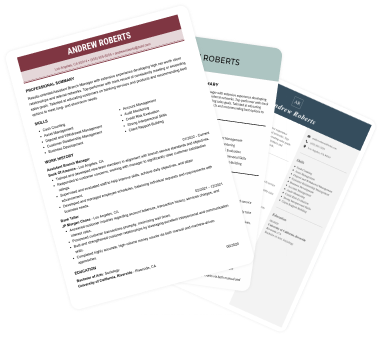
What Is a Cover Letter and Why Do You Need It? (+ Examples)
What is a cover letter for a job application? What is the purpose of writing a covering letter? A great CV isn't enough–see what a cover letter can do for you.
November 7, 2025
Last updated on 9 December, 2025
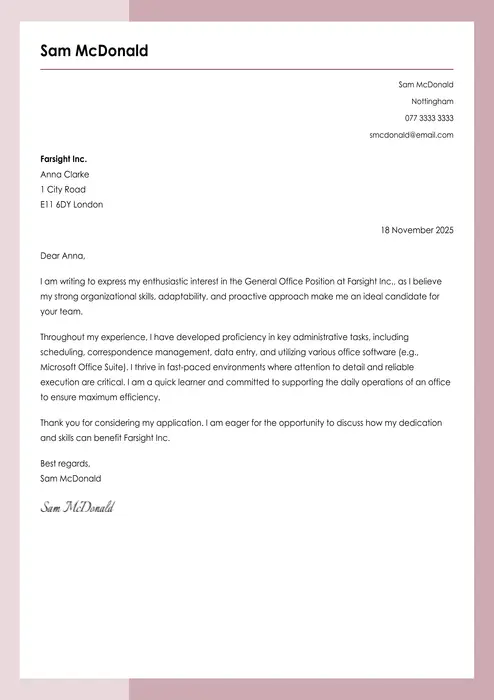
An average cover letter has around 300 to 500 words. But what if you could make one as effective in 200 words or less?
It doesn’t mean you’ll have to hide information or make it less appealing. A well-written short cover letter covers all the bases but is much more concise. So whether you’re mass applying for jobs or just plain don’t like writing, a short cover letter will be your best bet.
Below you’ll find short cover letter samples, all under 200 words. You’ll see examples of entry-level and experienced cover letters and what to do when you don’t know the recipient's name. And you’ll learn how to write a short cover letter for any job step-by-step.
Use the LiveCareer cover letter builder and your cover letter will write itself. Choose a professional template, answer a few easy questions and the creator will generate a professional cover letter for you with just one click.
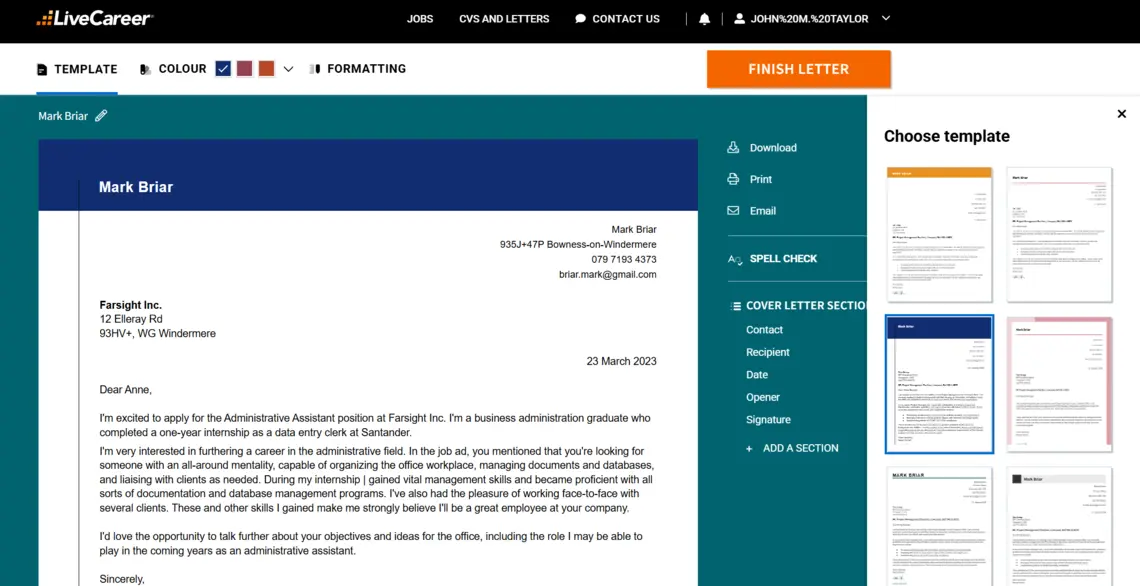
Looking for more career resources? Check out any of these guides:
Before we go and explain how to write one, find eight job application letter samples. You’ll see many ways and reasons you should write a short cover letter.
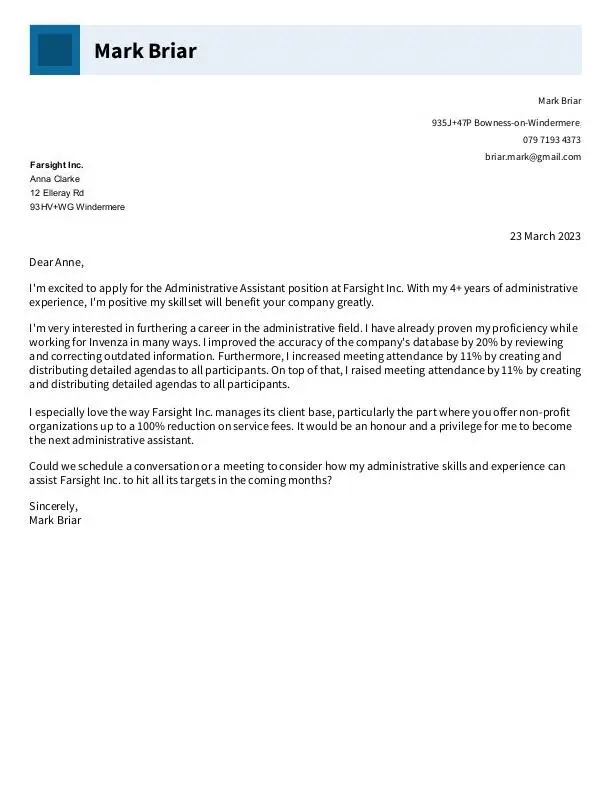
The letter above is less than 180 words long and swiftly impacts the hiring manager. It presents all the vital information that is a must-have in a cover letter: Previous work achievements, skills, aspirations, and a clear call to action.
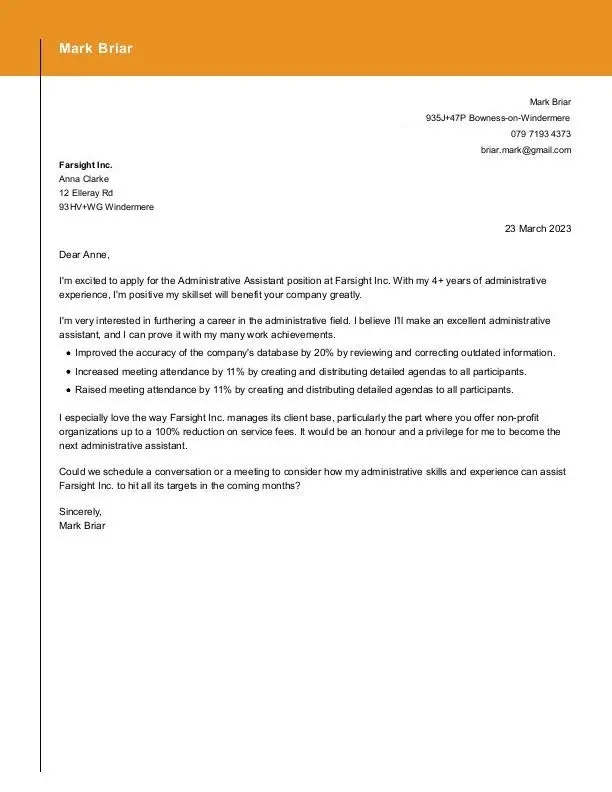
With just a slight change of adding bullet points, this short cover letter appears longer and better organised. Using bullet points to showcase relevant achievements, and in some cases also work skills, is one of the best strategies you can employ.
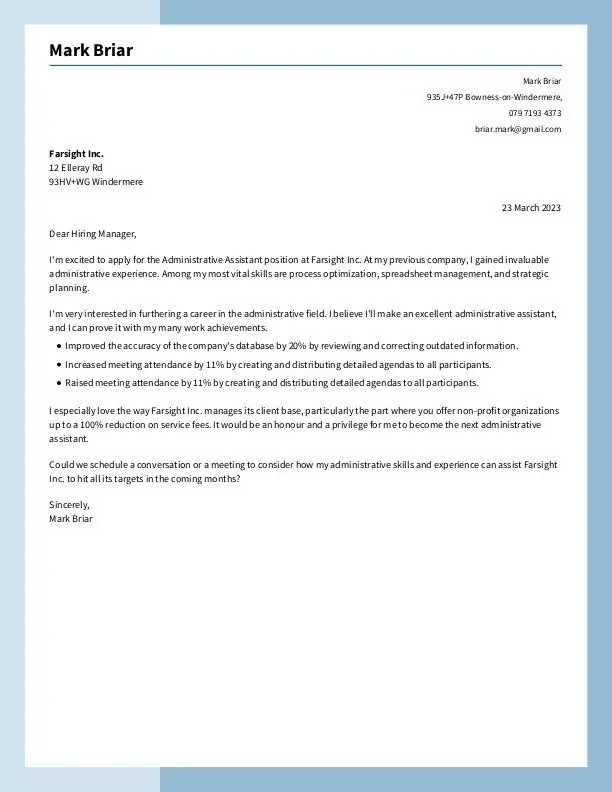
One of the more common problems with cover letters is needing to know the recruiter's name. When you don’t know it, avoid cliché phrases such as “to whom it may concern.” Instead, use “dear hiring manager” or “dear hiring team.”
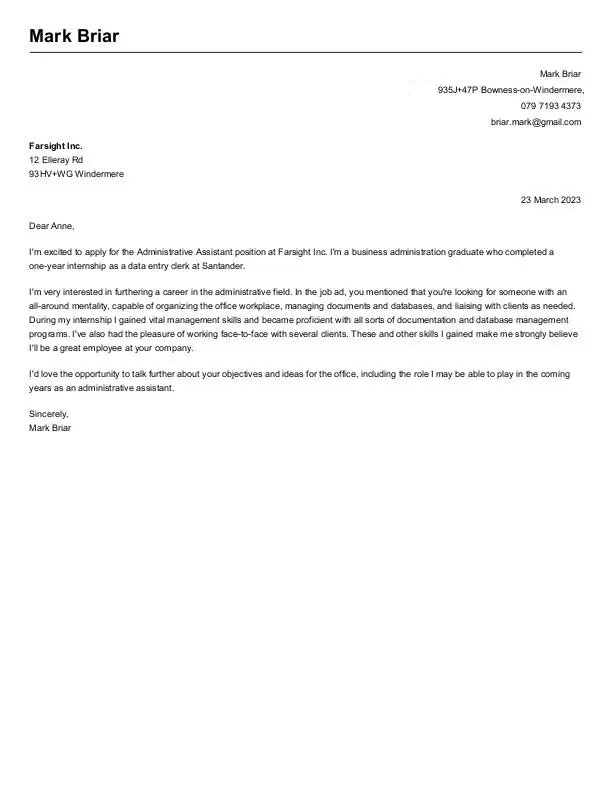
Short cover letters with no experience have their own set of challenges. Since you might not have work experience in your field, you need to show relevancy differently. Supplement your entry-level CV with a cover letter that shows applicable job skills, education level, and expertise from part-time or volunteer work.
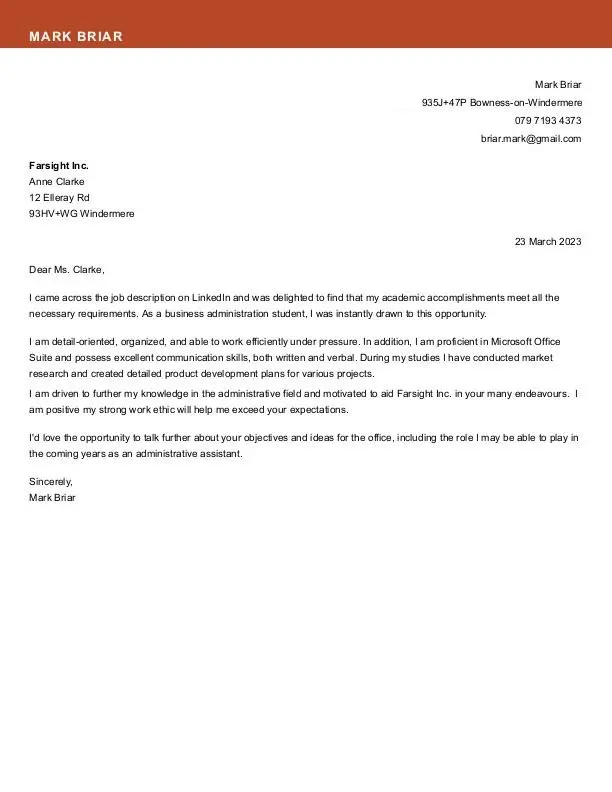
Similarly to an entry-level short cover letter, application letters for internships usually won’t show any work experience. And you’re probably looking for an internship opportunity while pursuing further education. With a short cover letter for internships, focus intensely on your ambition and drive to win yourself an interview.
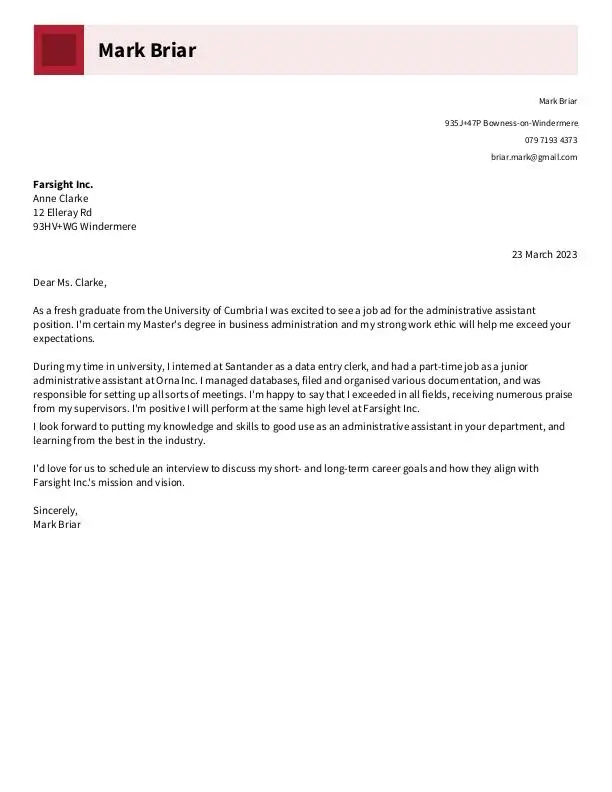
The cover letter of a fresh graduate won’t be able to show much. So, like with the previous examples, a short cover letter for a graduate needs to focus on transferable skills, educational background and motivation.
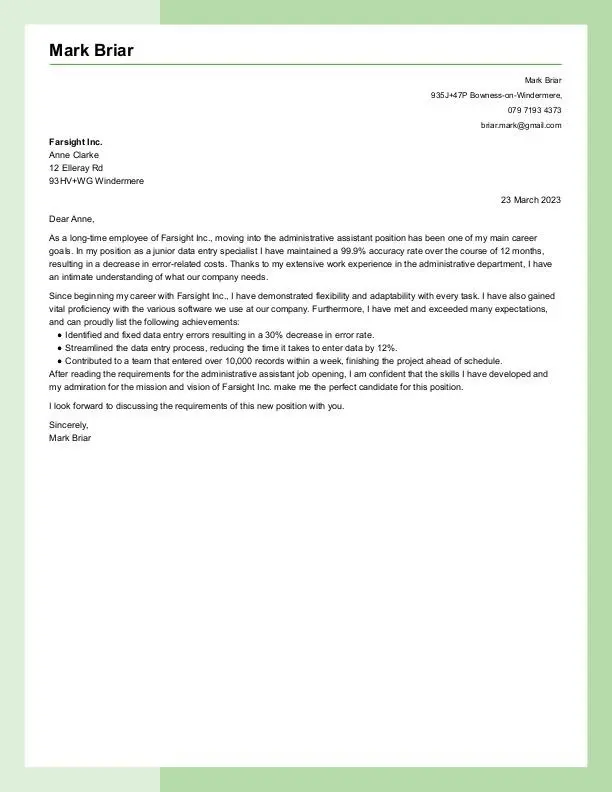
Writing a short cover letter for an internal position is relatively easy in some areas. You know the recruiter's name and have much better access to information on what the company wants. You’ve also worked for your company for a while, which boosts your chances, especially if you’re an exceptional employee. A short cover letter for a promotion or title change will significantly complement your career change CV.
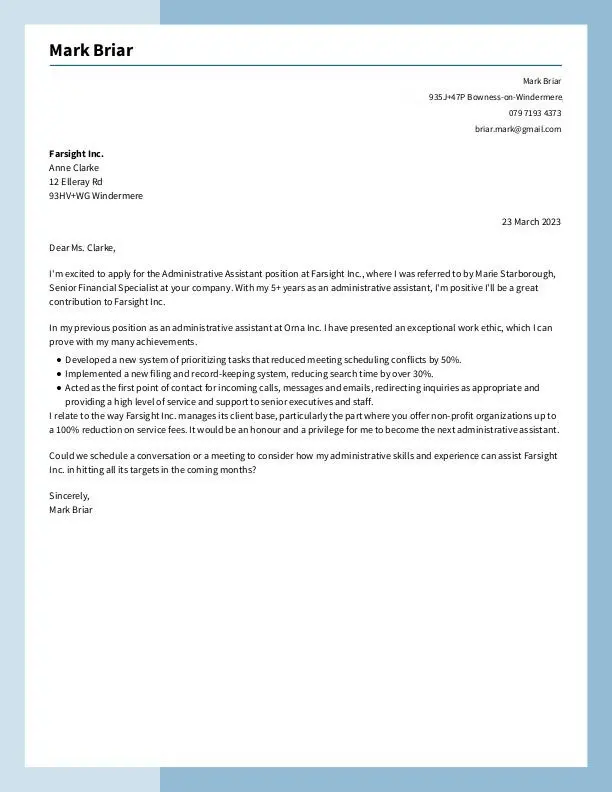
Although being referred for a job doesn’t often happen, when it does, you should adequately show it in your short cover letter. If you have a lot of experience or are an inexperienced worker, showcase the referral as a focal point of your short application letter.
You can adjust every cover letter created in the builder to meet the job requirements. Choose the name of your profession and the company to which you’re applying, and the LiveCareer cover letter builder will automatically adapt the content for you. Create a cover letter faster than you ever thought possible and apply for the job in record time.
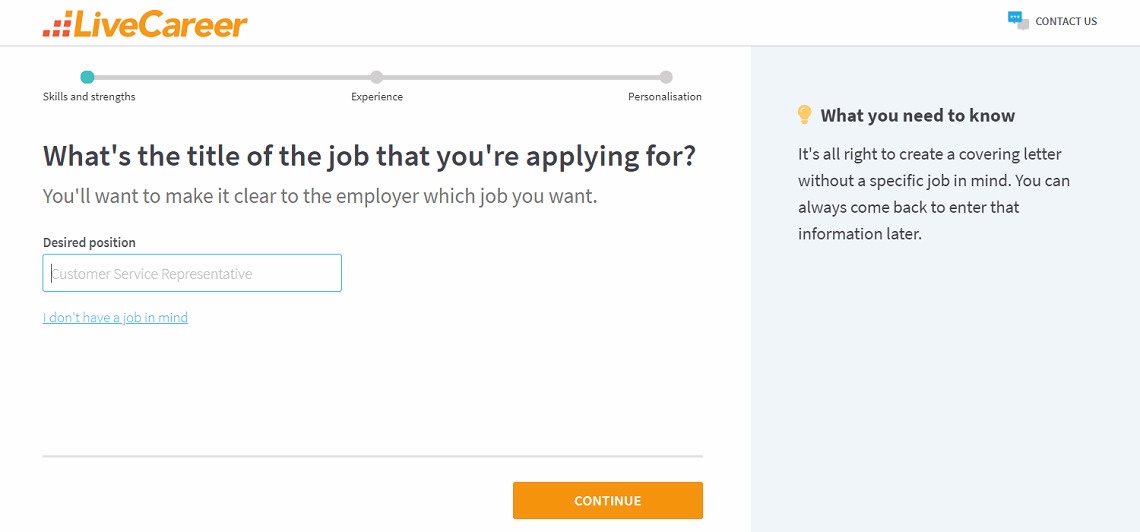
Now, let’s go through a step-by-step process of writing a short application letter for any job. Here’s everything you need to include in a cover letter:
The rigours of the standard UK cover letter format completely fix the header, no matter its length. And laying it out properly is a cinch:
As for addressing the hiring manager, there’s no making something like a simple greeting any shorter. The best way to start your short cover letter is with ‘Dear’ + the recruiter’s first name. Alternatively, you can go for ‘Dear’ + honorific + recipient’s last name.
Always use ‘Ms’ for women whose marital status is unknown to you (unless you’re absolutely sure she prefers ‘Miss’ or ‘Mrs’) and ‘Mr’ for men. Stay gender-neutral if you’re not sure of someone’s gender—you can do this, again, by using ‘Dear’ + their first name/full name.
What should you do if you don’t know who exactly you’re writing to? The short answer is: find out. The more helpful answer is: revisit the advert for clues, snoop around the company website, lurk around on LinkedIn, and if all else fails, give them a call and ask. It’ll make a world of difference.
If you still can’t get a hold of the recruiter’s name, use ‘Dear Hiring Manager’ or, better yet, ‘Dear XYZ Team Hiring Manager’—the more specific, the better. Avoid ‘To Whom It May Concern’ like the plague.
Your opening paragraph is you walking into the room, maintaining steady eye contact and introducing yourself in a loud, clear voice. It’s your first impression, so make it a good one. Focus on doing these three things:
If you have relevant work experience to lean back on, start with an achievement and a couple of skills the company is looking for in an employee.
If you lack experience, show your passion for the role and company. Include a relevant achievement if you can (from your studies or volunteer work), and showcase your transferable skills.
If someone referred you, mention it here. Having contacts and connections within the organisation is a good thing, and the fact that someone ‘on the inside’ thinks you should apply for the job also reflects well on you and suggests you might be a good match for the company.
You don’t have to create any content yourself. The LiveCareer cover letter generator will automatically suggest the best content for your cover letter with ready-made examples and expert tips.
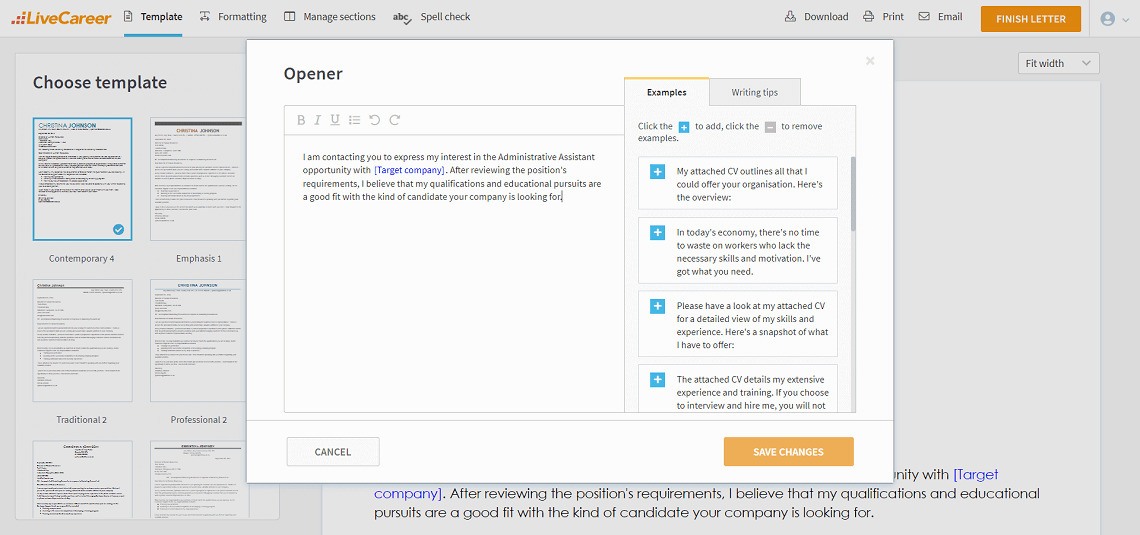
This is the main part of your short cover letter. It can be one or two paragraphs long, but perhaps limiting yourself to a single section will help keep your cover letter shorter.
Here, you should include 2–4 relevant and quantified achievements. Use bullet points to make the structure more appealing and save some space. If you’re struggling with structuring your accomplishments, use a PAR formula. Even though you’re writing a short cover letter here, keep this part the longest. The achievements you show here are what makes or breaks your cover letter.
If you lack professional experience, you should focus on presenting and proving your skills. Show a certificate you received or say a few words about a relevant university project you participated in. And one more tip—show your excitement to work for the company. That will undoubtedly make the recruiter look at your application more favourably.
Here, you’ll refer back to the benefits you could bring to the company you’re applying to. Express your willingness to work for them again, and add the most critical part—a call to action (CTA).
A CTA expresses your willingness to work as soon as possible and is a direct call to the hiring manager. And since you’ve taken the initiative to ask for an interview, you’re more likely to get it. The CTA is the best way to finish your cover letter.
When signing off, keep it simple, just like with the greeting. Thank your reader for considering your application. It’s good manners and could really work in your favour:
A cover letter alone simply won’t be enough—you need an impactful CV, too. Create your CV in minutes. Just follow our wizard and fill in every CV section with ready-made content. Get started by choosing a professional CV template.
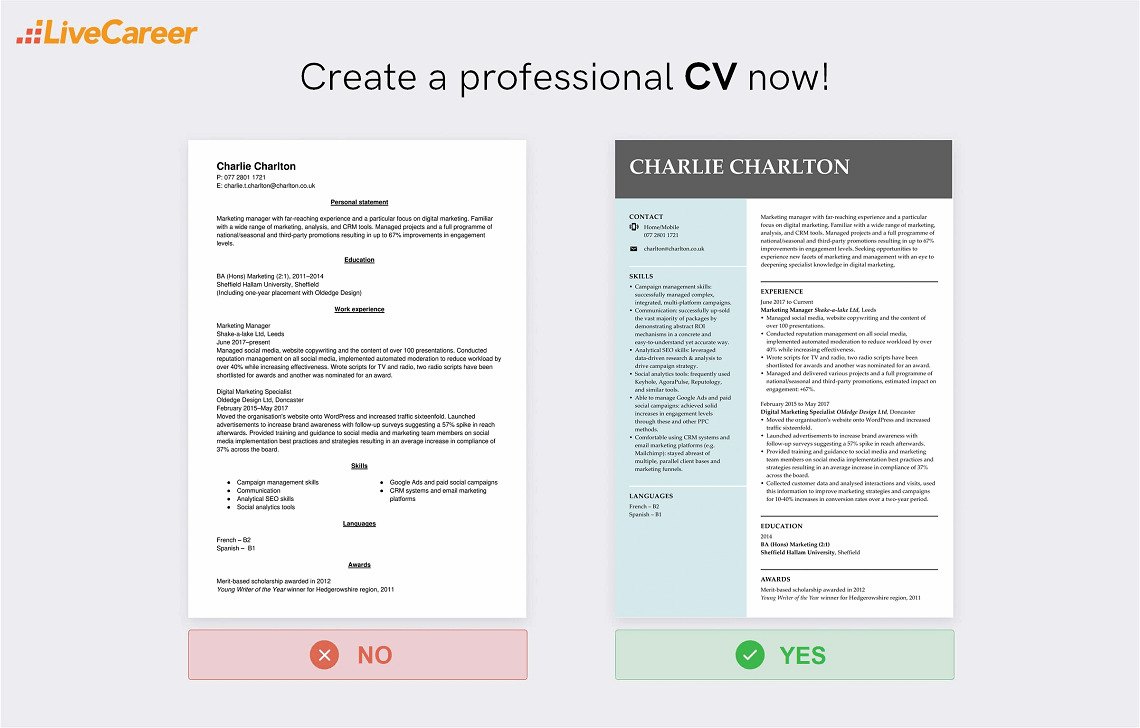
Short cover letters are perfectly viable and even preferred by recruiters. About 70% of employers like receiving cover letters that are half a page long. Just ensure it’s well-written, tailored to the job, and effectively communicates your qualifications and enthusiasm.
No, 300-word cover letters are the gold standard. 300 words are generally a bit over half a page, which is right in the middle of a standard cover letter length.
Yes, a cover letter can be 150 words long as long as you include all relevant information that must be included in a cover letter. A short cover letter like that can be more beneficial than a 400+ word one.
You should always make your cover letter one page. There can be scarce situations in which an employer would ask you to provide a 2-page cover letter, but for any other case, always go for a short cover letter on one page.
You shouldn’t apply without a cover letter unless the job ad explicitly states that you shouldn’t include a cover letter. Even though some recruiters won’t ever read it, many deem it necessary to consider your CV for the job.
To write the best short cover letter:
Category: Cover Letter
Crafting a job-winning CV is all about showcasing your unique skills and experiences. Start with a strong personal statement that highlights your career goals and achievements.
Try Our CV Builder Now